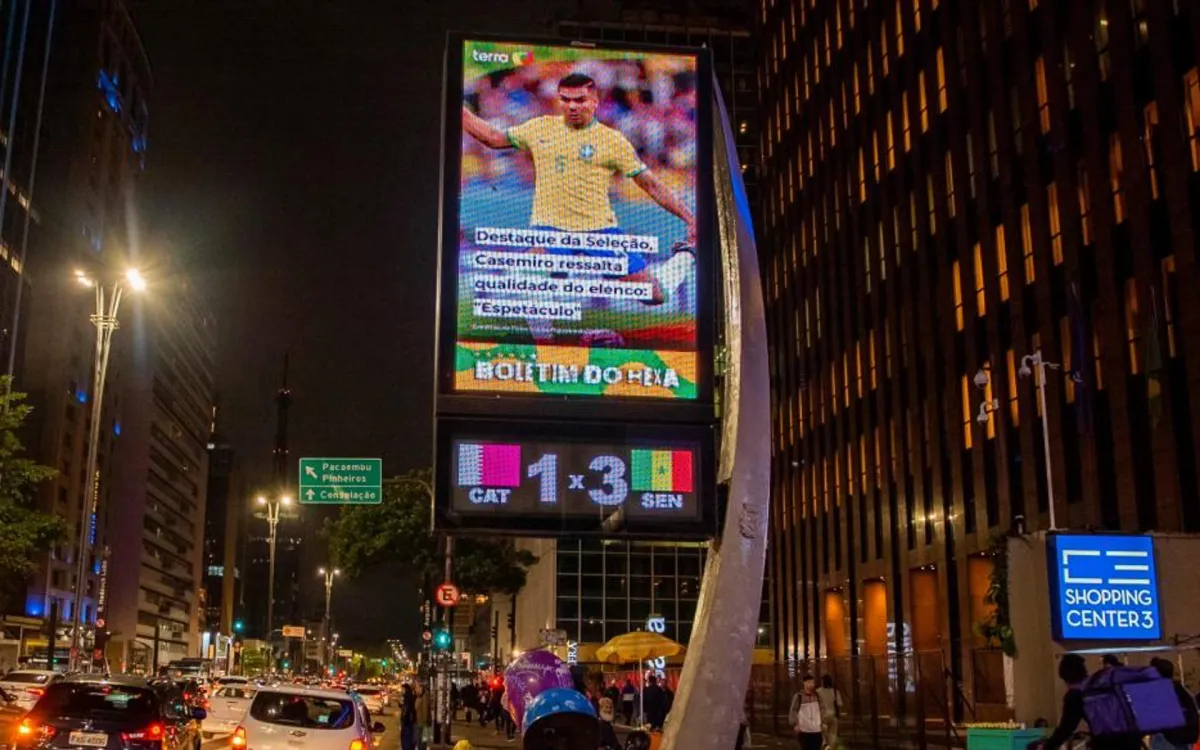
JCDecaux, the world's leading outdoor advertising company, has secured a significant contract to operate digital City Information Panels (CIPs) in Rio de Janeiro, Brazil. The announcement, made on October 14, 2024, marks an expansion of JCDecaux's presence in the city where it has been operating since 2016. This 20-year contract will see the company install and manage at least 225 full-digital assets across strategic areas of Rio de Janeiro, including locations near bike-sharing stations, metro stations, pedestrian zones, and high-traffic roads.
The new agreement allows JCDecaux to extend its operations to all areas of Rio de Janeiro, including the popular neighborhoods in the South Zone such as Copacabana, Ipanema, and Leblon. This development comes as part of the company's ongoing strategy to digitize its assets in Brazil, which is considered one of the fastest-growing markets globally for outdoor advertising.
JCDecaux first entered the Brazilian market in 1998, establishing operations in Rio de Janeiro. Since then, the company has steadily expanded its presence across the country. According to the company's historical timeline, JCDecaux reached São Paulo, Brazil's largest city, in 2004. The company's growth in Brazil has been marked by several key milestones:
- In 2013, JCDecaux returned to providing street furniture in São Paulo following changes in local advertising regulations.
- 2016 saw the expansion of JCDecaux's street furniture offerings to Belém and São Luiz.
- In 2018, the company secured a significant contract to become the official media operator for three main metro lines in São Paulo.
- More recently, in 2020, JCDecaux introduced a network of 140 new sustainable street clocks in Campinas, designed by renowned architect Carlos Bratket.
The significance of the Rio de Janeiro contract
The new contract in Rio de Janeiro is particularly noteworthy for several reasons:
- Digital Focus: The agreement specifically covers full-digital assets, aligning with JCDecaux's strategy to digitize its advertising inventory in Brazil.
- Strategic Locations: The CIPs will be placed in high-visibility areas, ensuring maximum exposure for advertisers.
- Extended Reach: The contract allows JCDecaux to operate in all areas of Rio de Janeiro, including the affluent South Zone neighborhoods.
- Long-Term Commitment: The 20-year duration of the contract provides stability and allows for long-term planning and investment.
The expansion in Rio de Janeiro comes at a time of significant growth in Brazil's outdoor advertising sector. According to data provided by JCDecaux:
- Outdoor advertising in Brazil grew by 40% in the first half of 2024.
- Out-of-home media now represents 11.2% of advertising investments in the country.
These figures underscore the increasing importance of outdoor advertising in Brazil's media landscape and justify JCDecaux's continued investment in the market.
JCDecaux's current operations in Brazil
As of 2024, JCDecaux's presence in Brazil is substantial:
- The company operates the largest national Street Furniture network in Brazil, with more than 15,000 poster sites.
- JCDecaux's assets are spread across 10 major cities, including São Paulo, Rio de Janeiro, Brasília, and cities in the North and Northeast regions.
- The company manages advertising concessions in Brazil's two busiest international airports: São Paulo Guarulhos (GRU) and Brasília (BSB).
- JCDecaux also operates advertising on the main metro lines in São Paulo.
Rio de Janeiro, with its population of over 6 million within the city and 12 million in the urban area, represents a crucial market for JCDecaux. The city attracts approximately 2 million tourists annually, making it the most visited city in Brazil. This high volume of both residents and visitors provides advertisers with access to a diverse, mobile, and economically active audience.
The full-digital nature of the new CIPs in Rio de Janeiro aligns with JCDecaux's broader strategy of digital innovation. The company plans to activate a programmatic offer, which will allow brands to deliver targeted messages at optimal times and locations. This technology promotes:
- Contextualization: Adapting content based on factors such as time of day, weather, or local events.
- Flexibility: Quickly changing ad content to respond to market conditions or campaign performance.
- Real-time capabilities: Updating messages instantly to maintain relevance.
JCDecaux's global position
While this contract focuses on Rio de Janeiro, it's worth noting JCDecaux's global position and environmental commitments:
- As of 2024, JCDecaux operates in more than 80 countries, reaching a daily audience of 850 million people.
- The company has 1,056,833 advertising panels worldwide.
- JCDecaux is present in 3,918 cities with more than 10,000 inhabitants.
- The company employs 11,650 people globally.
- JCDecaux is listed on the Euronext Paris stock exchange and is included in the Euronext 100 and Euronext Family Business indexes.
- The company's carbon reduction trajectory has been approved by the Science Based Targets initiative (SBTi).
- JCDecaux was the first Out-of-Home Media company to join the RE100 initiative, committing to 100% renewable electricity.
Key Facts
- JCDecaux won a 20-year contract for digital City Information Panels in Rio de Janeiro on October 14, 2024.
- The contract includes at least 225 full-digital assets in strategic locations across the city.
- JCDecaux has been operating in Rio de Janeiro since 2016 and in Brazil since 1998.
- Outdoor advertising in Brazil grew by 40% in H1 2024, representing 11.2% of advertising investments.
- JCDecaux operates over 15,000 poster sites across 10 major Brazilian cities.
- Rio de Janeiro has a population of 6 million in the city and 12 million in the urban area, attracting 2 million tourists annually.
- JCDecaux plans to introduce programmatic advertising capabilities with the new digital assets.
- Globally, JCDecaux reaches a daily audience of 850 million people in more than 80 countries.

